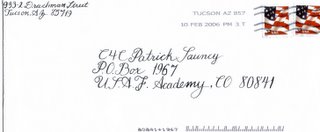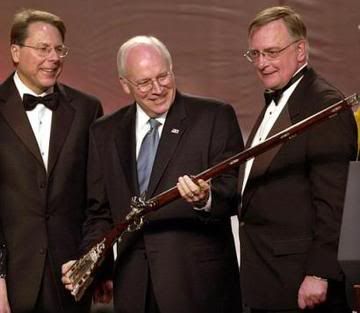Envy
Davis-Monthan is hosting F-22s for a few days, along with a bunch of other planes.This is the Air Force's newest plane. It is nearly invisible to radar (stealthier even than the F-117 Nighthawk), much more agile than previous fighters (it utilizes thrust vectoring, which allows it to direct its thrust ±20° in the pitch axis), it can supercruise (fly faster than the speed of sound without the use of afterburners), it looks sexy as hell, and it is named 'Raptor.'
And it is named 'Raptor.'
People are complaining that it might be too noisy. If you are in Tucson, and F-22s are coming over, and you are worried about noise, you are wrong.








